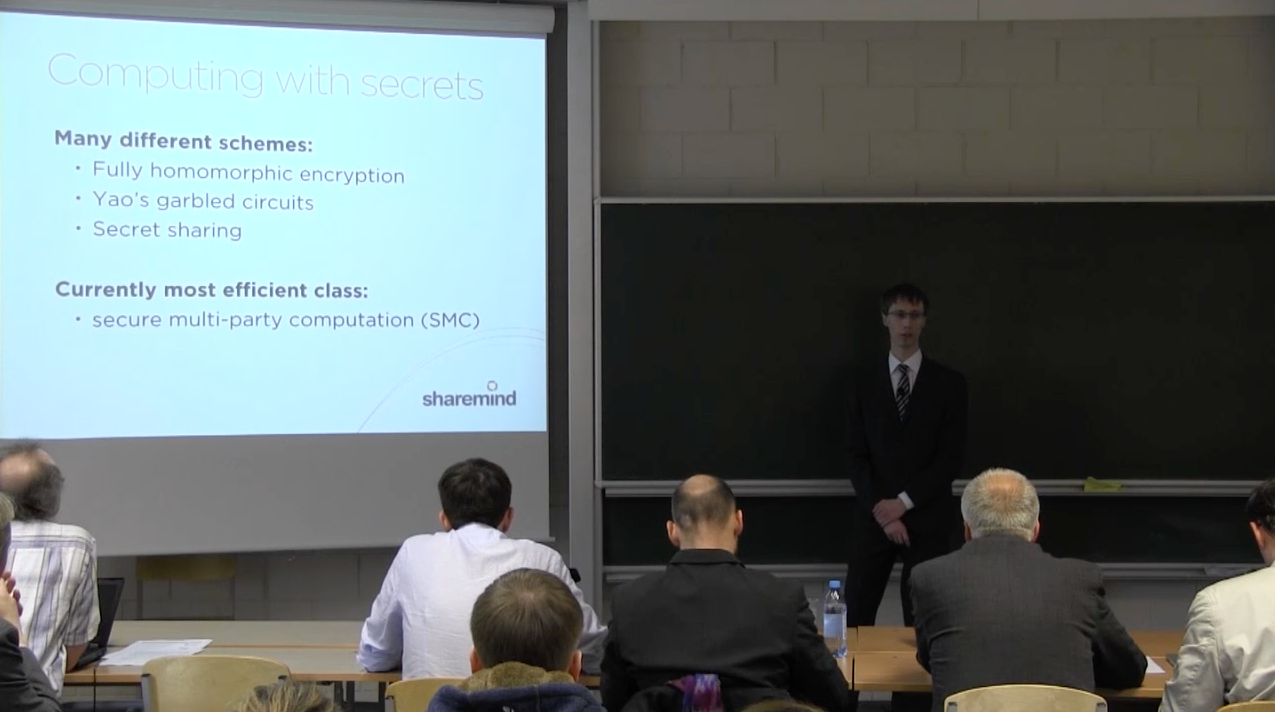
This is a modal window.
Beginning of dialog window. Escape will cancel and close the window.
End of dialog window.
<iframe width="560" height="315" src="https://www.uttv.ee/embed?id=25929" frameborder="0" allowfullscreen></iframe>
Supervisors:
PhD Peeter Laud (Cybernetica AS, Tartu, Estonia)
Prof. PhD Varmo Vene (University of Tartu, Tartu, Estonia)
Oponents:
PhD Manuel Barbosa (University of Porto, HASLab/INESC TEC, Porto, Portugal)
Prof. Dr. Stefan Katzenbeisser (Technische Universität Darmstadt, Darmstadt, Germany)
Secure multi-party computation is a technology that allows several independent parties to cooperatively process their private data without revealing any secrets. If private inputs are given in encrypted form then the results will also be encrypted, and at no stage during processing are values ever decrypted. As a theoretical concept, the technology has been around since the 1980s, but the first practical implementations arose a bit more than a decade ago. Since then, secure multi-party computation has been used in practical applications, and has been established as an important method of data protection. Developing applications that use secure multi-party computation is challenging. The tools that help with development are still very young and the frameworks are often too slow for practical applications. Currently only experts in cryptography are able to develop secure multi-party applications. In this thesis we look how to improve secure multy-party computation frame- works and make the applications easier to develop. We claim that domain-specific programming languages enable to build secure multi-party applications and frame- works that are at the same time usable, efficient, maintainable, trustworthy, and practically scalable. The contribution of this thesis is the introduction of two new programming languages for secure multi-party computation. The SecreC 2 language makes secure multi-party computation application development easier, ensuring that the applications are secure and enabling them to be efficient. The second language is for developing low-level secure computation protocols. This language was created for improving secure multi-party computation frameworks. It makes the frameworks faster and more trustworthy, and protocols easier to develop and maintain. We give give both a formal and an informal overview of the two languages and see how they benefit multi-party applications and prototypes.
Parema kasutuskogemuse tagamiseks kasutame küpsiseid. UTTV veeb ei töötle ega kogu isikuandmeid. UTTV kasutab Google Analyticsi teenust. Loe lähemalt andmekaitsetingimustest.